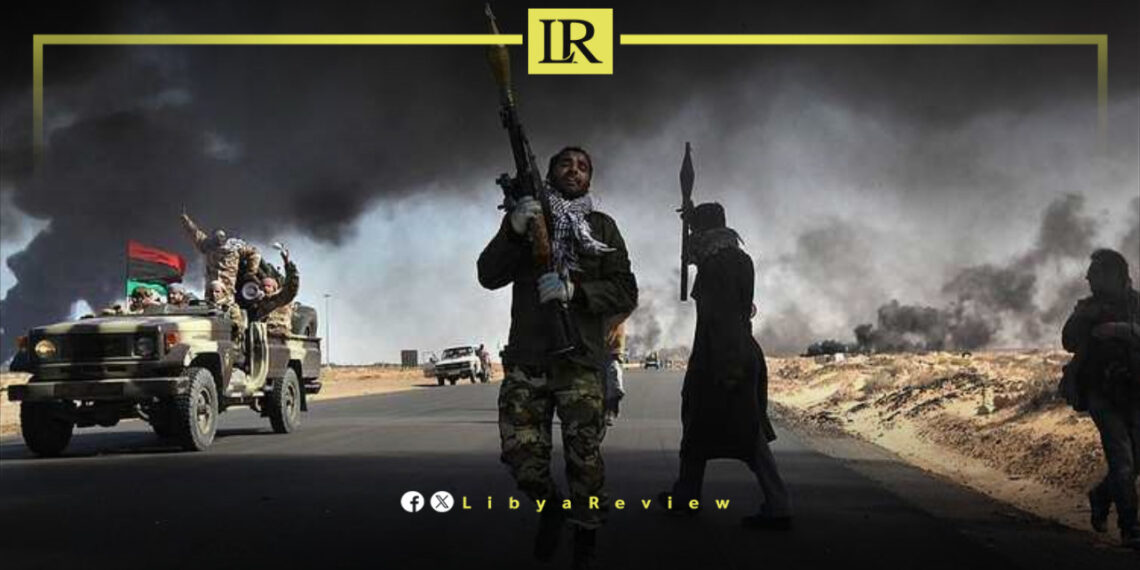Western Libya endured a year of violence and instability in 2024, dominated by the unchecked power of armed militias. These groups, often embroiled in bloody disputes over power, influence, or personal rivalries, caused widespread devastation and suffering across the region.
The continuing clashes left dozens of civilians dead, hundreds injured, and entire communities struggling to cope with the destruction of public and private property. Schools, universities, and daily life were repeatedly disrupted by the chaos.
One of the most recent confrontations occurred in December in Zawiya, where a militia led by Mohammed Kashlaf, a known smuggler nicknamed “al-Qasab” engaged in a deadly skirmish with a rival group from the Al-Shurafa tribe.
The violence claimed one life, injured ten others, and sparked massive fires in the oil storage facilities of the Zawiya Refinery. The National Oil Corporation declared a state of emergency, while schools in the area were forced to close.
Despite the escalating violence, Libya’s Government of National Unity (GNU), led by Prime Minister Abdul Hamid Dbaiba, has been widely criticized for its failure to address the militia crisis. Instead of countering these groups, the GNU has reportedly aligned itself with them, offering financial and political support in exchange for loyalty. Critics argue this approach has entrenched the militias further, enabling them to expand their influence unchecked. Dbaiba has even admitted publicly that key government positions are held by militia leaders, including his Minister of Interior, Imad Trabelsi.
Public protests against militia rule have been met with violence. In May, demonstrators in Zawiya demanding the removal of militias from their cities were attacked, leaving ten people injured and significant damage to private property. Such incidents have only deepened public frustration with the government’s inability—or unwillingness—to curb militia power.
The militias’ stranglehold on western Libya has been a primary driver of the country’s continued division since 2011. These groups operate as autonomous “states within a state,” controlling territories with impunity and often clashing over resources and influence. Political elites in Tripoli have relied heavily on militias to maintain power, further embedding them in Libya’s fractured political landscape. The militias have also obstructed attempts to unify Libya, violently opposing figures such as Fathi Bashagha, who was appointed Prime Minister by the House of Representatives but barred from entering Tripoli by militia forces in 2022.
Militias in western Libya have built lucrative criminal networks, engaging in fuel smuggling, arms trafficking, and drug trade. They are also central players in human trafficking operations that funnel migrants into Europe, generating massive profits. These activities undermine Libya’s stability and fuel international concerns over security and human rights.
Libya aspires to hold long-delayed presidential and parliamentary elections in 2025, hoping to establish a legitimate and unified government. However, experts warn that militias remain the greatest obstacle to this goal. These groups thrive in an environment of division and chaos, and the establishment of a rule-of-law state could lead to the prosecution of many militia leaders for their extensive crimes. Without dismantling these armed factions and unifying the country’s militar…


